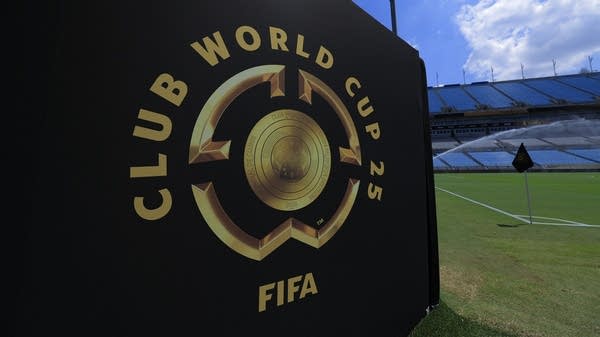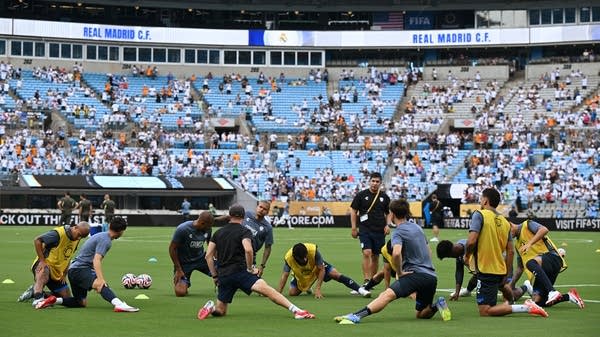Why FIFA's Club World Cup hasn't been the blockbuster event some organizers hoped for
The Club World Cup pits pro soccer teams from around the world against each other — which might be part of the problem.

We’re in the midst of FIFA’s Club World Cup, a tournament of professional men’s soccer teams from cities around the world — think Real Madrid and Inter Miami. Matches are being played in stadiums across the U.S., and there’s $1 billion in prize money on the line.
However, the competition isn’t quite creating the splash organizers were hoping for.
Teams in Club World Cup aren’t competing for patriotic bragging rights, per Lee Igel, a clinical professor with NYU’s Tisch Institute for Global Sport.
“They're the teams where players earn their living,” he said. “It's different than when they go off and play for their national teams.”
FIFA has held this kind of tournament before, but with only a handful of clubs, said Andrew Zimbalist, a professor emeritus of economics at Smith College.
“It was a very small event, maybe perhaps akin to the All-Star game in baseball every year. Nobody cared a great deal about the outcome,” he said.
FIFA wanted to garner more interest and more revenue, Zimbalist added. This year, it expanded the field fourfold. But all that really did is dilute the tournament’s star power.
“With 32 clubs from around the world, including clubs from Africa and South America and Asia, there's not a lot of name recognition,” Zimbalist said.
Many of these teams are relatively unknown on a global stage, because the world’s biggest soccer stars tend to get bought up by the world’s biggest and wealthiest clubs.
“It's very hard to structure a global competition where clubs from outside Europe would have a serious chance,” said Stefan Szymanski, a professor of sport management at the University of Michigan.
With unbalanced competition and games during the workday to accommodate primetime viewing in Europe, he said the tournament is having trouble filling seats.
“To watch a small team, you know, to watch Auckland play by Bayern Munich and get thrashed 10 nil, who's interested in that?” Szymanski said.

Players unions say the matches add to an already packed schedule — without properly compensating the players. In warmups this month, members of the Seattle Sounders wore shirts with the slogan “World Cup Cash Grab.”
With so many issues facing the tournament, “there’s a sense that this isn’t working, that it’s closer to a bust than a boom,” Lee Igel of NYU said.
That’s really just a short-term dollars-and-cents view, he noted. “What that really leaves out is that there's a massive social component to a tournament like this.”
In U.S. cities hosting these games, Igel said parents are bringing their kids — potentially inspiring lifelong fans. Plus, “it’s a really good stress test for the stadiums, for cities, for what’s coming next year,” he said.
That would be the actual World Cup — the one young soccer players grow up dreaming about.







!["I think [AI] is really cool. There is stuff out there that is fun to watch," said Bella Falco of Denver, Colorado. "There are also things that starting to really scare me, like fake creators."](https://img.apmcdn.org/cb0a9a7e54db934026285b941f4b74ded3dab5ea/widescreen/53f6b2-20251113-bella-falco-sitting-on-a-striped-couch-with-a-mug-600.jpg)





